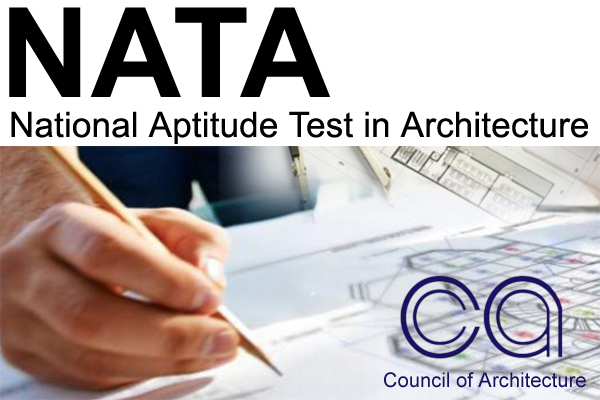
In addition to learning that the candidate has accumulated over the past few years that is related to the specific field of study, NATA assesses the applicant's aptitude for that field of study, in this case, architecture, through assessments of cognitive skills, visual perception and aesthetic sensitivity tests, logical reasoning and critical thinking abilities, etc.
The National Aptitude Test in Architecture (NATA) is a 5-year B.Arch. and B.Planning entrance exam that is administered at the national level by the Council of Architecture (COA). An aspiring architect can take this aptitude test to be admitted to architecture programs at colleges other than the IITs and NITs. But keep in mind that, in contrast to entrance exams for IITs and NITs, NATA is only an aptitude test and does not ensure your admission to any college.
| Name of Exam | National Aptitude Test in Architecture |
| Short Name | NATA |
| Conducted By | Council of Architecture (COA) |
| Frequency of conduct | 3 times a year |
| Language | English |
| Exam Level | National Level |
| Mode of Application | Online |
| Application fee | Rs. 2000/- |
| Mode of exam | Both offline and online |
| Duration of Exam | 3 hours |
| Participating Colleges | 344 |
The NATA eligibility requirements are stipulated by the exam-conducting authorities in the official notification. The qualifying exam, score requirement, and age restriction are all part of the NATA eligibility requirements. Before completing the online application form, test takers must review the NATA eligibility requirements.
Qualification Exam: The candidate must have passed the 10+2 exam or an equivalent diploma in math.
Qualification Points: The applicant must have received passing grades.
Minimum age requirement: 17 is the minimum age requirement.
NATA differs from other entrance exams in that it evaluates candidates' aptitude, as opposed to other entrance exams.
Understand the exam pattern:- Before taking the exam, candidates should first think about understanding the exam's syllabus and pattern. Since the NATA exam is more concerned with evaluating a candidate's aptitude in terms of cognitive skill, visual perception, logical reasoning, and critical ability.
Mock tests and sample papers:-Taking practice tests and working through sample papers will help you understand the questions to expect, the key concepts, and the subjects that require more study.
Revision: Consistent revision after a set period of time will help you retain the topics, making it one of the most crucial components of your preparation. Additionally, the revision will assist you in strengthening your weak areas.
Time management is one of the most crucial factors for candidates who want to participate in NATA, as increasing your speed will enable you to answer most questions with ease.